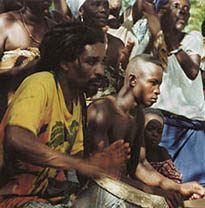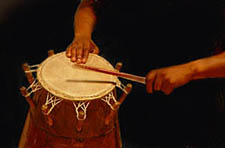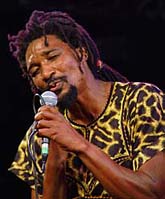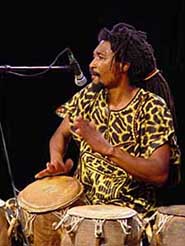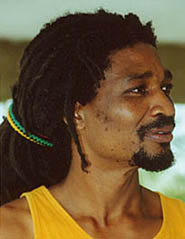
Biography
From childhood on the founder of Odehe
was rooted in the world of rhythm, movement and sound. He was born in the
Volta Region of Ghana in 1958 as the son of a well known traditional
drummer. As his father died very early, he never had the chance to get to
know him. The uncle took him to Accra, there he grew up.
